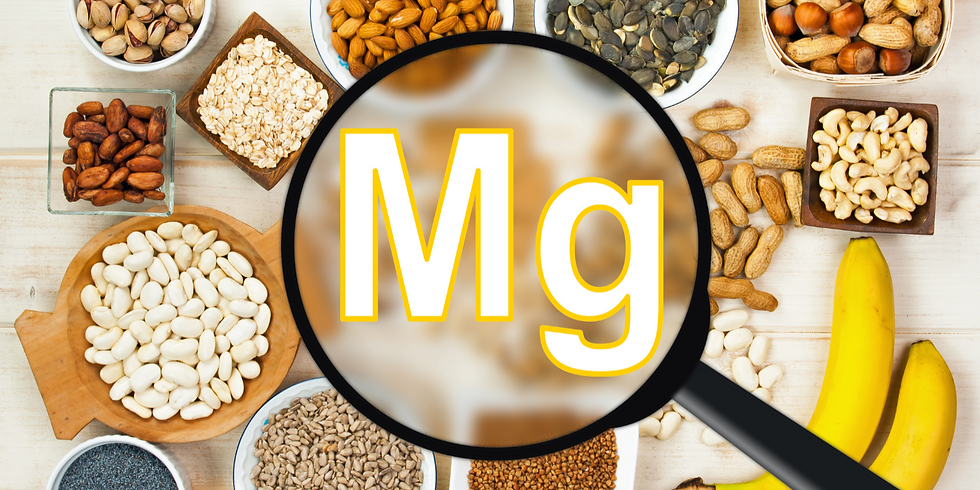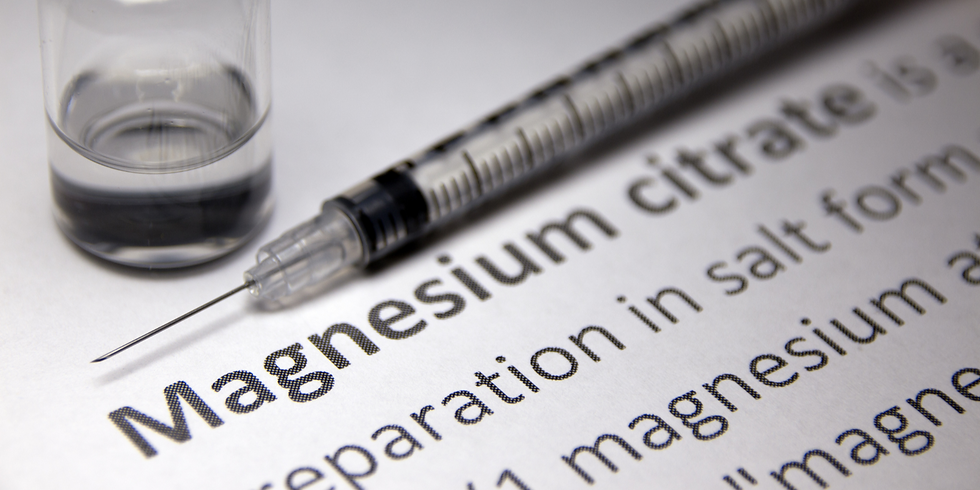How Does Fiber Powder Help Gut Health?
- Megan Hilbert, MS, RDN

- Sep 16, 2023
- 7 min read
Updated: Dec 31, 2023
Video Transcript:
Our gut is obviously a super key component to our overall health and well-being, and that's something we talk a lot about.
And there are lots of ways to maintain a healthy gut, right?
One of the most important ways, however, to do this is through fiber. Because fiber is something that our gut bacteria and other organisms within our gut absolutely love.
It's one of their favorite foods. And so when we feed these favorite foods to our healthy gut bacteria, they in turn reward us with improvements in immunity, metabolic health improvements, and even mental health improvements as well.
This is why healthy gut bacteria and in particular a diversity in those gut bacteria are associated with much healthier gut health and overall health in general.
Hi there. My name's Megan. I'm a registered dietitian nutritionist for Flusso Nutrients where we provide supplement education and high-quality supplement options for you in order to make the world of navigating supplements a little bit easier.
So as always, make sure to check in with your nutrition-literate healthcare provider before adding anything new to your regimen. Of course, we can't understand your personal history and health in order to make personal recommendations to you.
Without further ado, let's dive into today's topic, which is fiber powder. And if taking a fiber supplement is right for you.
The Potential of Fiber Powder for Optimal Gut Health

Without enough fiber in your diet, you might find yourself facing a host of different issues such as bloating or constipation or even an increased risk of developing certain chronic diseases like heart disease or diabetes.
Certainly, high cholesterols are associated with this. So there are multiple reasons why having enough fiber is really important, and for a lot of people, they may struggle with making sure they get enough fiber.
In fact, only 5% of Americans are making sure they're getting enough fiber in their diet and actually eating enough fiber.
And so this is where fiber supplementation can come in. While it's always preferable to get fiber through food sources like whole grains, fruits, vegetables, nuts, and seeds, this isn't always possible.
In fact, as I said, only 5% of Americans are reaching their fiber intake goals, and it's usually recommended to get at least 25 to 30 grams of fiber per day.
However, this isn't always doable for people due to potential health conditions where dietary restrictions are necessary or food availability, or even just personal preference. And so again, this is where fiber supplements can come in and help aid and make sure you're getting enough fiber in your daily diet.
The Role of Fiber Supplements
Fiber supplements are designed obviously to try to mimic the fiber found in whole foods as best as they can. And so when consumed fiber is then absorbed with water in the gut, and this can form a gel-like substance, and this gel-like substance is what's so beneficial for our digestive health.
So it can help improve the transit time of stool inside the gut. It can help create an easier environment for you to have a bowel movement. So there's not as much straining or pain. And of course, it can help as well with symptoms like constipation.
One of the most important ways fiber can help improve gut health is also through facilitating and creating a healthier environment for our gut microbiota. And this is because the bacteria and other organisms within our gut love fiber and specific types of fiber are known as prebiotics.
And if you're familiar with this term, awesome. If you're not, prebiotics are basically just the foods that are healthy microbiota like to eat.
And so when we feed our gut enough fiber, we're basically feeding it its favorite food, and this in turn can help improve the diversity of the microbiome. And of course, this is one of the most important measures for the health of the gut.
So now that we understand a little bit more about fiber and what makes it so important for the gut, it's a good idea to kind of dive in and look at the different forms of fiber and how they can help modulate a healthy gut.
So when looking at fiber supplements, it's really important to understand that there are multiple different types of fiber, and these fibers have different benefits.
So for example, there is a type of fiber called Psyllium husk, and this can have important symptom relief for things like constipation or even diarrhea. It forms again that gel-like substance and can have a mild laxative effect.
There's also another supplement known as inulin, and this is a prebiotic form of fiber. So again, as mentioned earlier, prebiotics are what feed the healthy microbiota.
And so when taking inulin, this can help diversify the gut a little bit more and create a more balanced environment, which of course improves lots of symptoms down the line.
Choosing Your Preferred Form of Fiber Supplements
When considering taking a supplement, of course, it's also important to think about what way you would prefer to consume fiber supplements.
So the two main forms of fiber supplements that you'll often find are pill form and powder form, and of course, each has its pros and cons.
When looking at pill form, for example, this can often be a lot more convenient of an option, less messes associated with it, easier for on-the-go and travel and things like this.
And when we look at the benefits of powder, a lot of people like powders because oftentimes there's a little bit higher concentration of fiber per serving in powder, so it can be a little bit easier to meet your daily needs.
Not only that, it's very convenient to sprinkle in things like smoothies or oatmeal or even in water because a lot of these options are flavored.
So it kind of depends on your preference and what matters in the long run is what you prefer to take and what's going to be easier to take for you.
Addressing Health Concerns with Fiber
Now, for somebody who has read this blog, you're probably also really curious about where fiber can help improve certain conditions.
As we discussed earlier, whole foods are going to be the most beneficial form of fiber, but for a lot of people, including the vast majority of Americans, this is something that a lot of us really, really struggle with, and that's why fiber supplementation can help.
So there are many conditions that fiber can help improve, and one of the top ones is weight management. So for individuals who are struggling with their weight, whether they're looking to lose weight or maintain weight, fiber is something that can really help with this.
And that's because fiber is something that really helps improve satiety with meals and can kind of contribute to more stable blood sugar levels, which reduces snacking and of course, cravings for certain foods, especially high-sugar foods.
And so for many people, they found benefits from taking fiber to help maintain their appetite a little bit more, and of course, see some weight loss results.

Fiber has also been shown to lower cholesterol in lots of studies. So if you're somebody who's suffering from high cholesterol and wants a more natural weight to help lower and manage your cholesterol numbers, fiber supplementation is really helpful with that.
And so soluble fiber in particular, so certain fibers like Psyllium husk are really beneficial for this can help reduce cholesterol within the blood and thus improve your numbers.
And so of course, this is something to talk to your doctor about, but for many people, supplementation with fiber is the right way to go to help improve high cholesterol.
Of course, last but certainly not least, if you are suffering from certain gut health conditions, fiber might be the right choice for you. And this is because again, as mentioned earlier, fiber is an essential part of maintaining a healthy microbiome and improving and regulating digestion.
So for example, if you're somebody who suffers from IBS, talking to your healthcare provider about supplementing with partially hydrolyzed guar gum might be beneficial for you in improving certain symptoms like bloating constipation, or diarrhea.
Now, on the other hand, if you're somebody who's suffering from gut dysbiosis, which is basically a fancy way of saying there is an imbalance between the healthy and unhealthy bacteria in your gut, this is where prebiotic supplementation can come in, and the certain types of prebiotic fibers that can feed those healthy bacteria.
So again, inulin is a great example of this on the Flusso website, we also have another prebiotic fiber supplement, which includes other things like chicory root extract and even fructose oligosaccharides, which again feed those healthy bacteria, creating a more diverse environment that can help reduce certain symptoms like gas and bloating and irregularity in the digestive system.
Now, as mentioned earlier, whole-food forms of fiber are going to be ideal, but again, a lot of people struggle with making sure they're getting enough fiber in their diet.
And of course, if you're somebody who struggles with any of the conditions that we just mentioned and talked about fiber helping, this is going to be really important for you to discuss some of these concerns with your healthcare provider, whether that's a registered dietitian nutritionist or another nutrition literate healthcare provider, because they can help determine if fiber supplementation or even increasing fiber in your diet is right for you as sometimes this can maybe worsen some conditions. And so that's why it's really important to loop in your provider with some of these discussions.
So I really appreciate you joining me in this conversation around fiber. As you can tell, this can help so many different health conditions, whether it's gut health, whether it's heart health, whether it's weight management, and that's why fiber is one of my favorite things to recommend to people when they're looking to improve their health.






Comments